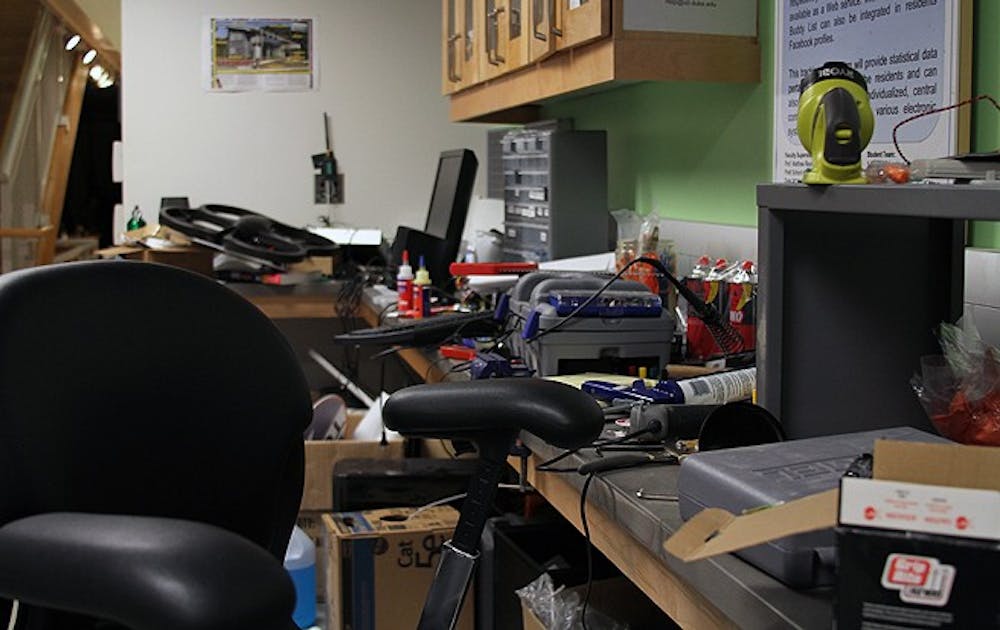For students who demand intelligence not just from their peers but from their houses, Duke has just the place to live.
The Smart Home, a live-in research laboratory nestled behind the Freeman Center for Jewish Life, teaches students about environmental innovation and serves as a model for future sustainable housing practices. Although sponsored by Duke’s Pratt School of Engineering, the home hopes to recruit a variety of students for each residential year.
“Any Duke student can apply,” Smart Home Director Jim Gaston wrote in an email. “We try to have five Trinity and five Pratt students living in the Smart Home—we want a diverse group of students.”
Initiated as a Pratt student project in 2003, the home opened its doors to residents in Spring 2008 as the first building at Duke to receive LEED Platinum, the highest sustainability rating from the U.S. Green Building Council. The home utilizes innovative environmental technology such as rainwater harvesting for toilet water and solar heating to conserve energy in a cost-effective manner. The Smart Home is also the first building on campus to exclusively employ LED lights, Gaston added. As a testament to the innovative thinking that created the space, both Smart Home Fellows and students taking classes at the house actively engage in projects surrounding sustainable technology—for example, using solar panels to provide power to tents in Krzyzewskiville and utilizing infrared lasers to detect empty parking spaces. Though residents are not required to participate in a project, prospective applicants must submit an idea that supports the general goals of the home.
“We want to see that you are capable of thinking along the lines of adding to our house,” said senior Kimberly Wang, vice president of the Smart Home and second year resident.
Students also have the option to join current projects with members of the Smart Home program as well as expand on ideas that students have presented in the past. Some current projects include Duke Rides, a rideshare program that helps students find carpools, and erecting a green wall made out of plants.
The projects are not limited to Duke’s campus, noted junior Frank Lee, a current resident of the house who recently attended the Consumer Electronic Show in Las Vegas in order to preview potential additions to the home.
“It is really cool to see what is out there and what can be implemented in the home and expanded on,” Lee said.
The idea of sustainable living extends beyond the Smart Home’s walls. Residents have begun composting and utilizing the Duke Community Garden’s resources. Students from both organizations often gather for home-grown lunches.
Wang noted that one of her favorite aspects of the Smart Home is its community feel.
“Because it is a house, everything is really personal,” Wang said. “You get to know everybody really well—it’s very comfortable.”
Those who are interested can find the application online on the Duke Smart Home website. Applications are due Feb. 8.
Get The Chronicle straight to your inbox
Signup for our weekly newsletter. Cancel at any time.

